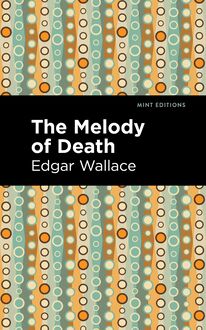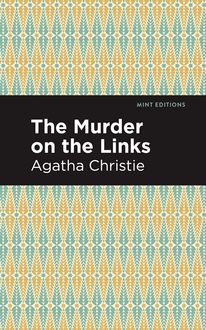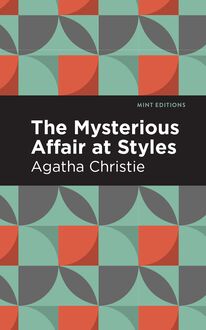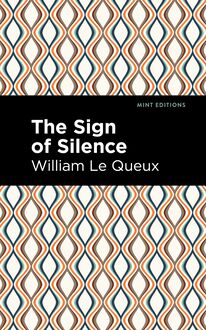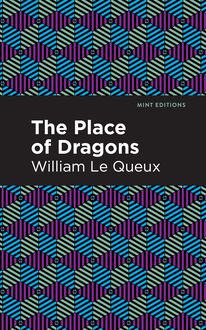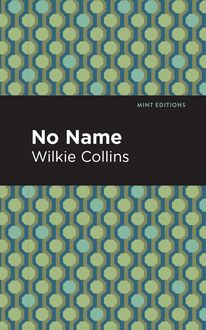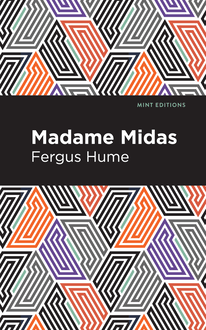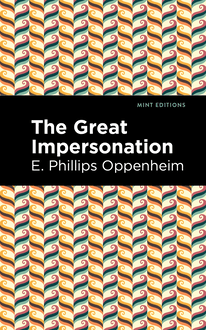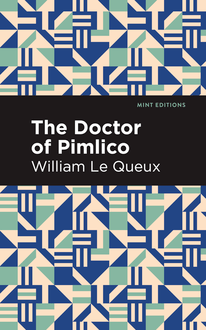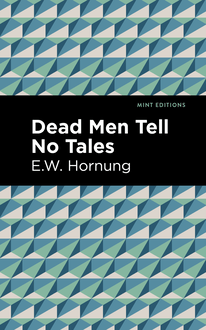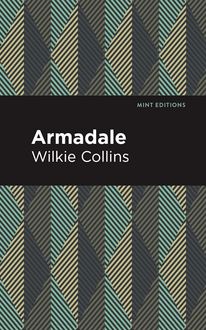-
 Univers
Univers
-
 Ebooks
Ebooks
-
 Livres audio
Livres audio
-
 Presse
Presse
-
 Podcasts
Podcasts
-
 BD
BD
-
 Documents
Documents
-
- Cours
- Révisions
- Ressources pédagogiques
- Sciences de l’éducation
- Manuels scolaires
- Langues
- Travaux de classe
- Annales de BEP
- Etudes supérieures
- Maternelle et primaire
- Fiches de lecture
- Orientation scolaire
- Méthodologie
- Corrigés de devoir
- Annales d’examens et concours
- Annales du bac
- Annales du brevet
- Rapports de stage
La lecture à portée de main
Vous pourrez modifier la taille du texte de cet ouvrage
Découvre YouScribe en t'inscrivant gratuitement
Je m'inscrisDécouvre YouScribe en t'inscrivant gratuitement
Je m'inscrisEn savoir plus
Vous pourrez modifier la taille du texte de cet ouvrage
En savoir plus

Description
The Sign of Silence (1915) is a mystery novel by Anglo-French writer William Le Queux. Published at the height of Le Queux’s career as a leading author of popular thrillers, The Sign of Silence is a story of stolen identity, mystery, and international crime. Using his own research and experience as a journalist and adventurer, Le Queux crafts an accessible, entertaining for readers in search of a literary escape. Known for his works of fiction and nonfiction on the possibility of Germany invading Britain—a paranoia common in the early twentieth century—William Le Queux also wrote dozens of thrillers and adventure novels for a dedicated public audience. Although critical acclaim eluded him, popular success made him one of England’s bestselling writers. In The Sign of Silence, a man named Royle receives a late night telephone call from his friend Sir Digsby Kemsley, a wealthy socialite and renowned engineer. When he arrives at his mansion in Harrington Gardens, a strange air of secrecy and fear has taken over Digsby. Talking in a hurried manner, he asks his old friend to adopt a disguise in order to deliver a sealed envelope to a mysterious woman, then to await a call. Before he allows Royle to leave, he makes him promise to remain loyal to him at all costs, which the novel’s hero agrees to immediately. The next day, however, a man claiming to be Digsby reaches out via telephone, acting as though nothing had happened. As the story unfolds, a manhunt is launched for the shadowy figure whose friendship has been essential to Royle’s life in London, and whose disappearance will shock the world. With a beautifully designed cover and professionally typeset manuscript, this edition of William Le Queux’s The Sign of Silence is a classic thriller reimagined for modern readers.
Sujets
Informations
| Publié par | Mint Editions |
| Date de parution | 21 mai 2021 |
| Nombre de lectures | 2 |
| EAN13 | 9781513285870 |
| Langue | English |
| Poids de l'ouvrage | 2 Mo |
Informations légales : prix de location à la page 0,0500€. Cette information est donnée uniquement à titre indicatif conformément à la législation en vigueur.
Extrait
The Sign of Silence
William Le Queux
The Sign of Silence was first published in 1915.
This edition published by Mint Editions 2021.
ISBN 9781513280851 | E-ISBN 9781513285870
Published by Mint Editions ®
minteditionbooks.com
Publishing Director: Jennifer Newens
Design & Production: Rachel Lopez Metzger
Project Manager: Micaela Clark
Typesetting: Westchester Publishing Services
C ONTENTS I. I NTRODUCES A G ENTLEMAN II. T HE S CENT III. D ESCRIBES THE T RYSTING -P LACE IV. “D EAR O LD D IG ” V. “T IME WILL P ROVE ” VI. T HE P IECE OF C ONVICTION VII. F ATAL F INGERS VIII. C ONTAINS F URTHER E VIDENCE IX. D ESCRIBES THE Y ELLOW S IGN X. C HERCHEZ L A F EMME XI. I N W HICH AN A LLEGATION IS M ADE XII. P HRIDA M AKES C ONFESSION XIII. T HE F UGITIVE ’ S S ECRET XIV. R EVEALS A F URTHER D ECEPTION XV. A N E FFACED I DENTITY XVI. R EVEALS ANOTHER E NIGMA XVII. C ONCERNS M RS . P ETRE XVIII. D ISCLOSES THE T RAP XIX. T HE S EAL OF S ILENCE XX. F ROM THE T OMB XXI. R ECORDS A S TRANGE S TATEMENT XXII. “M ARIE B RACQ !” XXIII. L OVE ’ S C ONFESSION XXIV. O FFICIAL S ECRECY XXV. F RÉMY , OF THE S URETÉ XXVI. S HOWS E XPERT M ETHODS XXVII. E DWARDS B ECOMES M ORE P UZZLED XXVIII. F URTHER A DMISSIONS XXIX. T HE S ELLER OF S HAWLS XXX. F ACE TO F ACE XXXI. S HOWS THE T RUTH -T ELLER XXXII. I S THE C ONCLUSION
I
I NTRODUCES A G ENTLEMAN
“Then it’s an entire mystery?”
“Yes, Phrida.”
“But it’s astounding! It really seems so utterly impossible,” declared my well-beloved, amazed at what I had just related.
“I’ve simply stated hard facts.”
“But there’s been nothing about this affair in the papers.”
“For certain reasons the authorities are not exactly anxious for any publicity. It is a very puzzling problem, and they do not care to own themselves baffled,” I replied.
“Really, it’s the most extraordinary story of London life that I’ve ever heard,” Phrida Shand declared, leaning forward in her chair, clasping her small white hands as, with her elbows upon the table- à -deux , she looked at me with her wondrous dark eyes across the bowl of red tulips between us.
We were lunching together at the Berkeley, in Piccadilly, one January day last year, and had just arrived at the dessert.
“The whole thing is quite bewildering, Teddy—an utter enigma,” she exclaimed in a low, rather strained voice, her pretty, pointed chin resting upon the back of her hand as she gazed upon me from beneath those long, curved lashes.
“I quite agree,” was my answer. “The police are mystified, and so am I. Sir Digby Kemsley is my friend, you know.”
“I remember,” she said. “You once introduced me—at the opening of the Motor Show at Olympia, I believe. A very brilliant and famous man, isn’t he?”
“Rather! A famous engineer. He made the new railway across the Andes, and possesses huge rubber interests in Peru. His name, both in Seina and Valparaiso, is one to conjure with,” was my reply; “but—”
“But what?” queried my well-beloved.
“Well, there’s one fact which greatly increases the mystery—a fact which is yet to be told.”
“What’s that?” she asked eagerly.
I hesitated.
“Well, I’ve been making inquiries this morning,” I replied with some reluctance, “and I learn to my blank amazement that there is no such person as my friend.”
“No such person!” she echoed, staring at me, her lips parted. Being seated in a corner, no one could overhear our conversation. “I don’t follow you!”
“Well, Sir Digby died somewhere in South America about a year ago,” was my quiet response.
“What? Was your friend a fraud, eh?”
“Apparently so. And yet, if he was, he must have been a man of marvellous cunning and subterfuge,” I said. “He was most popular at the club, known at the Ritz and the Savoy, and other places about town.”
“He struck me as a man of great refinement—a gentleman, in fact,” Phrida said. “I recollect him perfectly: tall, rather thin, with a pointed, grey beard, a long, oval face, and thinnish, grey hair. A very lithe, erect man, whose polite, elegant manner was that of a diplomat, and in whose dark eyes was an expression of constant merriment and good humour. He spoke with a slight accent—Scotch, isn’t it?”
“Exactly. You remember him perfectly, dear. A most excellent description,” I said; “and that same description has been circulated this morning to every police office throughout the United Kingdom, as well as to the prefectures of police in all the European capitals. All the ports are being watched, as it is expected he may make his way abroad.”
“But what do the authorities suspect?” asked Phrida, with a serious look.
“Ah, that’s just it! They haven’t yet decided what to suspect.”
I looked across at her and thought, though slightly more pale than usual, she had never appeared more charming.
Sweet-faced, slim, with a soft, sibilant voice, and dainty to her finger-tips, she did not look more than nineteen, though her age was twenty-four. How shall I describe her save to say that her oval, well-defined features were perfect, her dark, arched brows gave piquancy to a countenance that was remarked wherever she went, a merry face, with a touch of impudence in her smile—the face of an essentially London girl.
Only daughter of my father’s late partner, James Shand, we had been friends from childhood, and our friendship had, three years ago, blossomed into a deep and mutual affection. Born and bred in Kensington, she cared little for country life. She loved her London, its throbbing streets, its life and movement, its concerts, its bright restaurants, and, most of all, its theatres—for she was an ardent playgoer.
My father, Edward Royle, was head of the firm of well-known chemical manufacturers, Messrs. Royle and Shand, whose works were a feature of the river landscape close to Greenwich, and whose offices were in St. Mary Axe. He had died two years before, pre-deceasing his partner by a year. The business—a big one, for we were the largest chemical manufacturers in England—had been left solely in my hands. Shand’s widow still lived with Phrida in Cromwell Road, drawing from it an income of seven thousand pounds yearly.
As for myself, I was a bachelor, aged thirty-two, and if golf be a vice I was greatly addicted to it. I occupied a cosy set of chambers, half-way up Albemarle Street, and am thankful to say that in consequence of my father’s business acumen, my balance at my bankers was increasing annually. At the works at Greenwich nearly two thousand hands were employed, and it had always been the firm’s proud boast that they laboured under the most healthy conditions possible to secure in the manufacture of chemicals.
My father, upon his deathbed, had held my hand and expressed to me his profoundest satisfaction at my engagement with the daughter of his partner, and almost with his last breath had pronounced a blessing upon our union.
Yes, I loved Phrida—loved her with all my heart and all my soul. She was mine—mine for ever.
Yet, as I sat at that little table in the white-enamelled restaurant gazing at her across the bowl of tulips, I felt a strange, a very curious misgiving, an extraordinary misty suspicion, for which I could not in the least account.
I experienced a strange intuition of doubt and vague uncertainty.
The facts we had just been discussing were, to say the least, amazing.
Only the Metropolitan Police and myself were aware of the astounding discovery which had been made that morning—a discovery of which the ever-vigilant London evening newspapers had as yet no inkling.
The affair was being carefully hushed up. In certain quarters—high official quarters, I believe—a flutter of excitement had been caused at noon, when it had become known that a mystery had occurred, one which at the outset New Scotland Yard had acknowledged itself utterly without a clue.
About the affair there was nothing usual, nothing commonplace. The murder mysteries of London always form exciting reading, for it is surely the easiest work of the practised journalist to put forward from day to day fresh clues and exciting propositions.
The present case, however, was an entirely fresh and unheard-of mystery, one such as London had never before known.
In the whole annals of Scotland Yard no case presenting such unusual features had previously been reported.
“Have you no theory as to what really occurred?” Phrida asked slowly, after a very long and pensive silence.
“None whatever, dear,” I replied.
What theory could I form? Aye, what indeed?
In order that the exact truth should be made entirely plain to the reader and the mystery viewed in all its phases, it will be best for me to briefly record the main facts prior to entering upon any detail.
The following were the circumstances exactly as I knew them.
At twenty-five minutes to ten on the previous night—the night of January the sixth—I was at home in Albemarle Street, writing letters. Haines, my man, had gone out, and I was alone, when the telephone bell rang. Taking up the receiver I heard the cheery voice of Sir Digby Kemsley asking what I was doing. My prompt reply was that I was staying at home that night, whereupon his voice changed and he asked me in great earnestness to come over to his flat in Harrington Gardens, South Kensington, at eleven o’clock.
“And look here,” he added in a confidential tone, “the outside door will be closed at half-past ten and the porter off duty. I’ll go down just before eleven and leave the door ajar. Don’t let anyone see you come in. Be extremely careful. I have reasons I’ll explain afterwards.”
“Right,” I replied, and shut off.
His request seemed just a little curious. It struck me that he perhaps wished to consult with me over some private matter, as he had done once before. Therefore, just before eleven I hailed a taxi in Piccadilly and drove westward past Gloucester Road Station, and into the quiet, eminently select neighbourhood where my friend lived.
At eleven o’clock Harrington Gardens—that long
-
 Univers
Univers
-
 Ebooks
Ebooks
-
 Livres audio
Livres audio
-
 Presse
Presse
-
 Podcasts
Podcasts
-
 BD
BD
-
 Documents
Documents
-
Jeunesse
-
Littérature
-
Ressources professionnelles
-
Santé et bien-être
-
Savoirs
-
Education
-
Loisirs et hobbies
-
Art, musique et cinéma
-
Actualité et débat de société
-
Jeunesse
-
Littérature
-
Ressources professionnelles
-
Santé et bien-être
-
Savoirs
-
Education
-
Loisirs et hobbies
-
Art, musique et cinéma
-
Actualité et débat de société
-
Actualités
-
Lifestyle
-
Presse jeunesse
-
Presse professionnelle
-
Pratique
-
Presse sportive
-
Presse internationale
-
Culture & Médias
-
Action et Aventures
-
Science-fiction et Fantasy
-
Société
-
Jeunesse
-
Littérature
-
Ressources professionnelles
-
Santé et bien-être
-
Savoirs
-
Education
-
Loisirs et hobbies
-
Art, musique et cinéma
-
Actualité et débat de société
- Cours
- Révisions
- Ressources pédagogiques
- Sciences de l’éducation
- Manuels scolaires
- Langues
- Travaux de classe
- Annales de BEP
- Etudes supérieures
- Maternelle et primaire
- Fiches de lecture
- Orientation scolaire
- Méthodologie
- Corrigés de devoir
- Annales d’examens et concours
- Annales du bac
- Annales du brevet
- Rapports de stage
